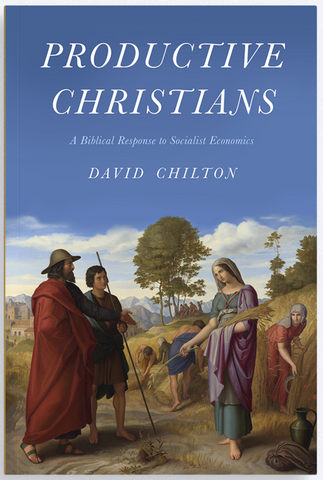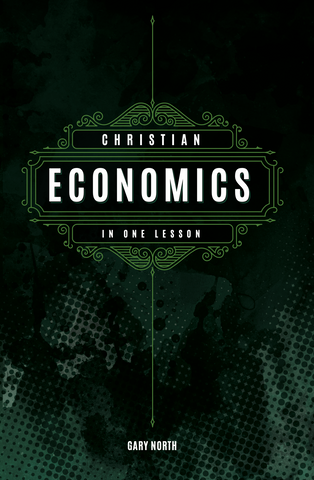California just implemented a law to force many businesses to pay employees $20 per hour. First, like so much of government regulation, this is theft. Only governments (and the mafia) can force people to pay more money for work they don’t do. Second, it’s a job killer for young people trying to get work experience.
If you listen to Democrats, most Americans are working at jobs for minimum wage pay. It’s not even close to the truth. The Democrats are using the minimum wage debate to garner sympathy for liberal causes and to paint Republicans as Scrooges.
Let’s get real. Many adult Americans who are working at minimum wage jobs probably can’t get better jobs for two reasons: First, the Democrats have so messed up the economy that upward economic mobility has been made more difficult. High taxes, prohibitive and expensive government regulations, and fear of what might happen in the future if Joe Biden and the Democrats get back in power puts a damper on business expansion.
Second, many adults who are working at minimum wage jobs can’t work at a higher level, and employers who might like to take a risk on inexperienced workers believe (rightly or wrongly) they can’t take the risk because of how costly it is to train a new employee. Employers would rather give a raise to an existing worker and pass the additional work on to him or her than hire a new inexperienced worker.
What will happen to the people already making $20 per hour? They will demand a higher wage since their skill level and experience are the reasons they are making a higher wage. Unions will also lobby for higher wages. When the minimum wage goes up, union wages and benefits also go up. That’s why unions are always behind an increase in the minimum wage. Unions can hold businesses hostage to force up wages, so they want new contracts to reflect a “proper” wage-distance from the meager minimum wage earner.
In time, economic equilibrium will settle in, and we’ll be back at the starting gate. Wages will be higher, and so will prices for everything.
Higher wages also mean higher prices. Not only will employers have to pay $20 per hour, but Social Security and Medicare costs will also go up for the employer because of the increase. Remember that an employer pays the same amount of Social Security and Medicare “contribution” that an employee pays. In addition, the states and the Federal government will get more tax revenue since the increase in pay will mean more money to tax and spend.
Here are some facts about the minimum wage that rarely come up in discussions:
As I mentioned above, the number of minimum wage workers in the United States is small compared to the overall workforce. It’s around 2.8 percent:
“The U.S. Department of Labor says 1.6 million people make the federal minimum wage of $7.25 an hour. Another 2 million earn below that rate, such as restaurant servers who make tips in addition to a lower base hourly wage which, according to U.S. News and World Report,‘in many cases actually puts them significantly above the minimum wage in reality, if not officially.’ That means in a nation of 317 million people, just 3.6 million (1.1%) make at or below the minimum wage. As a share of the U.S. workforce, just 2.8% of people working make minimum wage.”
Coupled with the low number of minimum wage workers is the fact that most of these workers are between 16-24 and “‘about half of those paid the Federal minimum wage or less’ are below age 25. Many of these are students working while in school or teenagers with part-time or summer jobs. That means half of the people most affected by a minimum wage hike are among those least likely to show up at the polls to vote…. Indeed, minimum wage workers who are 16 and 17 years old are not even legally eligible to vote.”
Democrats continually argue that minorities and the poor are hardest hit by low minimum wage pay. Actually, it’s the increase of the minimum wage that hurts these two groups.
“Nobel Prize-winning economist Milton Friedman famously noted that ‘the most anti-black law on the books of this land is the minimum wage law.’ Higher wages mean employers seek higher, more skilled workers. That, said Friedman, puts those with disproportionately less education and experience at a significant disadvantage when looking to put their foot on the first rung of the employment ladder.’” The real minimum wage is zero. If a person can’t find a job, he or she gets nothing. When governments manipulate markets to fix seeming disparities, more harm than good happens. Most elected officials who formulate and pass laws that affect businesses have never owned or run a business. “You shall not steal” and “You shall not defraud” are what civil governments should be concerned about not how much a business should pay a worker or how much something should cost.
By making it illegal to pay someone less than a government-mandated minimum wage, those with less experience are at a disadvantage. Employing teenagers is now a classic Catch-22 dilemma.
“Do you have experience?,” the shop owner asks.
The teenager is honest and shows initiative by answering, “No, but I’m willing to work at a lower wage to gain experience.”
“Sorry,” the shop owner says. “I would be breaking the law if I hired you for any amount less than the minimum wage. I can hire someone with experience at the same wage I’d have to pay you.”
“But I can’t get experience if you won’t hire me.”
“Tough luck. Complain to your newly elected socialist congresswoman.”
Brian Levine, co-owner of Tropical Smoothie Café knows the law and the logic of the marketplace:
A lot of it comes down to what we can afford, versus the hours they’re available to work. We are more or less the minimum-wage-type of place. I would obviously prefer to pay minimum wage, but I’d also go for an adult and pay them an extra dollar an hour. They’re available, have more experience and are quicker to train.
Renee Ward, the founder of the job posting site Teens4Hire.org, offers a similar story. “If you have two candidates for a job, and one has experience and will take $10 an hour, and the other is a teen with no experience, who do you think would get the job? When jobs aren’t there for anyone, it’s that much harder.”
Once again, governments are the problem not the solution to job and wage growth.
You might respond, “Sure, you can say this because you make a lot of money.” I don’t know what a lot of money is, but I sure make more than I did at one of my first jobs—$50 a week to wash pots and pans at a country club. Do the math. It was a little more than a dollar an hour.
I worked a New Year’s Eve party at a restaurant when I was 16 with no hourly wage. The only money I got was tips. The no-wage guarantee made me work hard to get good tips. I made $20 for three hours of work. That was in 1966. That was big bucks back then.
I worked in the produce department at Kroger after school, weekends, and during the Summer. This experience enabled me to get a job in Florida when the economy was soft. When I went in to apply, the manager told me that they were only hiring part-time. He then asked if I had experience. I ended up working 60 hours a week. There was no union. My hard work was noticed, and I was offered the assistant manager’s job at a new store the company was opening.
It was these types of jobs and disgusting working conditions that incentivized me to do better. I gained work experience and references. I worked through high school, had two jobs in college, and worked my way through graduate school as a custodian and assistant bookstore manager.
Get the government out of the minimum wage business and you’ll see the economy grow, prices fall, and wages that will keep up with expenses. The best workers will get the best jobs at the best prices. When the economy is roaring, employment demand is high. So is competition for workers. This results in businesses having to pay more out of necessity. The free market works.
Also, cut every government program that is not constitutional and lower taxes. Make the Federal Government nearly irrelevant, because it should be.

Productive Christians
Socialism has a perennial appeal, and Christians seem to be particularly susceptible to its allure. The modern evangelical resurgence of interest in social justice, critical race theory, gender equity, and woke idealism are clear evidence of this. But, for all its aspirations for justice, equality, and fairness, the rhetoric of socialism is typically marked only by high sounding moralisms stuffed with cliché, guilt, pity, bluster, and resentment. What is worse is that history demonstrates that this rhetoric has had disastrous results whenever it has been translated into economic or political policy. Socialism has proven itself to be the sort of ideology that could produce a shortage of salt water in the Pacific.

Christian Economics in One Lesson
Christian economics must begin with the issue of ultimate ownership. This sets it apart from modern economic analysis, which begins with the issue of scarcity. Second, this leads to the issue of theft, which in turn raises the issue of ethics. The ultimate form of causation in human history is ethical: right vs. wrong. Modern economists do not share this view. In fact, it goes beyond this. They openly reject it. They proclaim economic analysis as value-free—this is self-deception. It is a variation of an ancient temptation: “Hath God said?” Yes, He has. “Thou shalt not steal.”
















